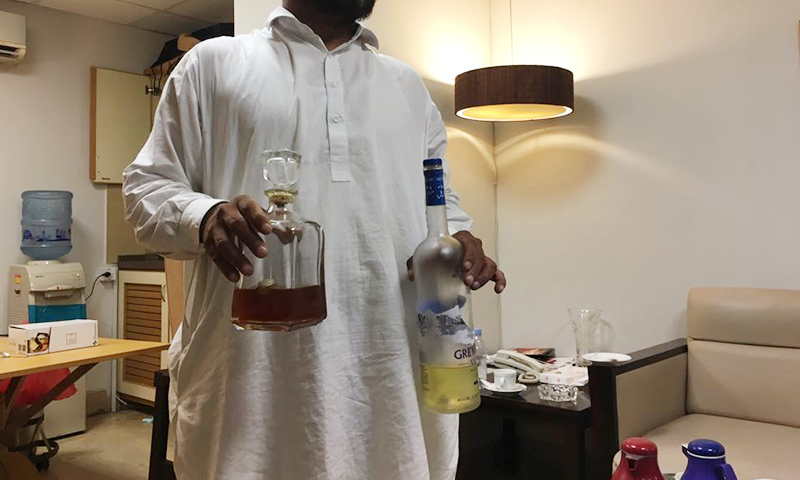When breaches of diplomatic protocol become norm, trouble beckons
The News International
Sept 1, 2018
Umer Cheema
Does the "Oxford educated" Immy know about diplomatic protocolISLAMABAD: Prime Minister Imran Khan’s telephonic conversation with US Secretary of State Mike Pompeo and the subsequent controversy over their talking points has highlighted a chronic malpractice of our ruling elite: They don’t follow diplomatic protocols.
Imran is not the first to breach the protocol by deciding to take a call of an official who does not share his status as the executive head of government. In fact, such meetings are often held and the details of these interactions kept secret from official stakeholders. Even the Foreign Office remains foreign, according to former and serving officials of the Ministry of Foreign Affairs.
Islamic brotherhood and saving or losing face are more important than diplomatic protocolThere are few countries where the Standard Operating Procedures (SOPs) of foreign relations are disregarded as much as in Pakistan. This breach of protocol became common during the rule of Gen. Ziaul Haq, because he wore so many official hats. Zia became the chief martial law administrator in 1977 and then had himself appointed president in 1978. He worked without a prime minister until 1985 and thus was comfortable with meeting foreign dignitaries of lower protocol ranking, according to a former diplomat.
And then he addressed the awaam and gave a BS story, about India taking advantage if Pakistan did not say "yes" .Compliance with SOPs improved somewhat during democratic governments, only to be reversed after Gen. Pervez Musharraf seized power in 1999. As a “frank and candid” soldier, he preferred to personally conduct meetings with foreign partners. In Musharraf’s own words, he was playing golf when received a call from the then US Secretary of State, Colin Powell, seeking his cooperation in the war on terror. He responded with a straightforward "yes" without consulting any officials and resumed his round of golf.
According to diplomatic SOPs, a foreign dignitary should not make a direct call. A request must be conveyed to the Foreign Office. It would inquire about the subject of requested conversation and a call would be scheduled at a mutually agreed time. The protocol level of the caller is also taken into account.
In case the US secretary of state wishes to speak with the prime minister of Pakistan, he would usually be referred to his opposite number, the foreign minister. “Maintaining the protocol level is very important. If the secretary of state is allowed to speak with the prime minister, he will prefer to maintain that link instead of interacting with his counterpart,” said a Pakistani diplomat.
In Pakiland, it is practiced more in the breach !The transcript of such a conversation would be prepared and shared with the Foreign Office for addition to the official record, according to the SOPs. What is to be made public is decided by mutual consent. In case a disagreement on content arises, the conversation is kept confidential.
Thus arises the question: Why did Imran decide to take Pompeo's call? A report by Geo’s Mona Khan revealed that the foreign ministry had advised him not to accept a call from a US official other than President Donald Trump or Vice President Mike Pence.
Was the transcript of their conversation shared with the Foreign Office? No. It is equally unclear who asked the Foreign Office spokesperson to tweet that the US State Department press release about the call was inaccurate, particularly the portion which claimed Imran and Pompeo had discussed terrorists based in Pakistan.
Another diplomatic faux pas occurred on Friday when PM Imran Khan interacted with senior journalists. It was reported that the French President, Emmanuel Macron, wanted to speak with the prime minister, but he twice refused to take the call because he was busy with the media. He later received the call on the advice of Foreign Minister Shah Mehmood Qureshi.
Had the SOPs been followed, the foreign dignitaries would know that their request to talk to Imran should have been routed through the Foreign Office and a call scheduled accordingly.
Another breach of SOPs takes place when foreign dignitaries bypass Pakistan's diplomats to meet with political and military leaders. Protocol requires the presence of a Foreign Office note-taker, who would record the minutes of the meeting and circulate it to all the stakeholders. Doing so is important so as to ensure all state institutions are on the same page. Mistrust among institutions is the inevitable consequence of such breaches of protocol. For example: An American dignitary holds separate one-on-one meetings in Islamabad and Rawalpindi. Neither side knows what has been discussed during the meetings because they were not recorded by a Foreign Office note-taker and no other diplomatic representative was allowed to attend.
Similar scenes are evident when Pakistan's decision makers visit Saudi Arabia, raising questions as to whether the bilateral relationship is country-to-country in nature, or person-to-person in practice. When Musharraf was questioned about the sources of the wealth he used to buy properties in Dubai and London, he admitted to receiving millions of dollars from Saudi Arabia's King Abdullah and termed it as his “private affair”, although the money was received in his capacity as the head of state.
Likewise, Gen. Raheel Sharif would meet the visiting US officials holding the rank of deputy secretary of state, whereas their protocol level is equivalent only to a director general of the Foreign Office.






